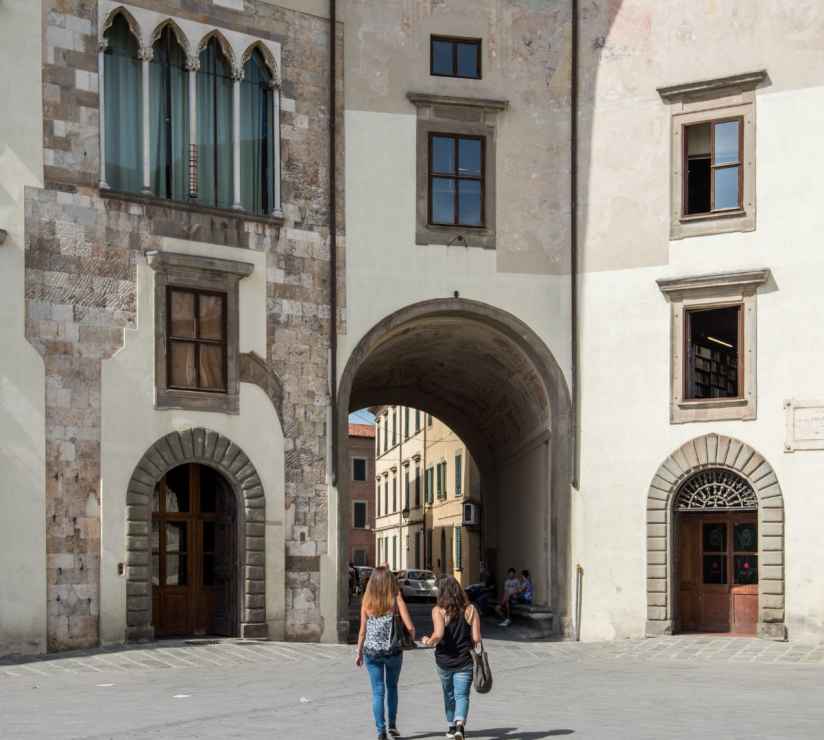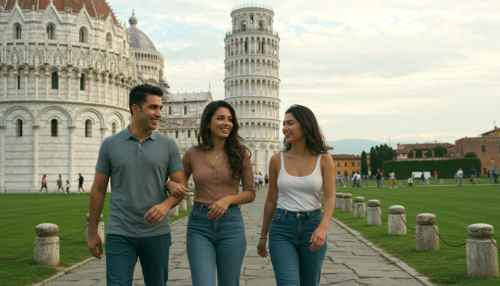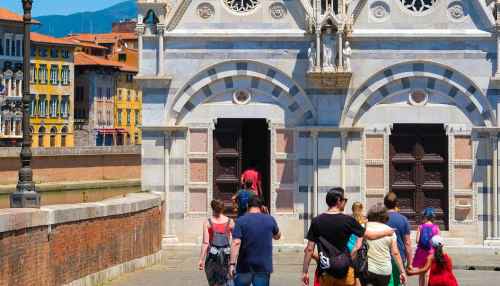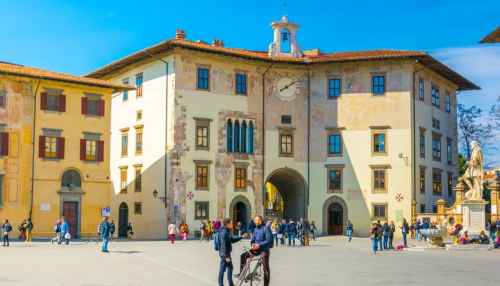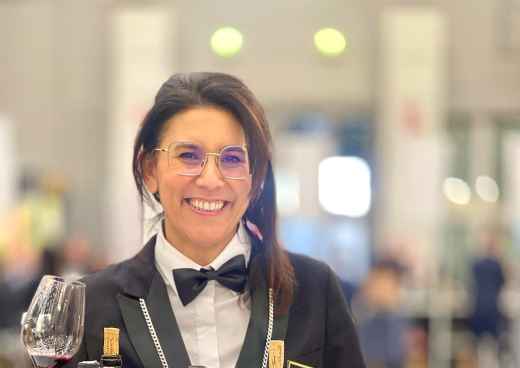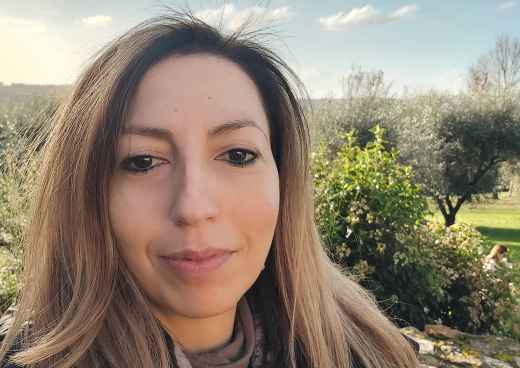Table Of Contents
- Why Pisa is the Perfect Gateway to Tuscany's Wines
- What Makes a City Unscripted Wine Experience Different?
- From Pisa to the Chianti Classico Heartland
- Private or Small Group? Your Choice
- Taste Beyond Chianti: San Gimignano & Boutique Wineries
- Meet the Makers: Behind the Scenes of Tuscan Winemaking
- Pairing Food & Wine in Tuscany
- How to Plan Your Pisa Wine Tour
- Pisa Highlights Before or After Your Wine Experience
- Ready to Raise a Glass in Pisa?
Forget the crowded buses and rigid schedules of typical wine tours from Pisa Italy. When you're ready to taste Tuscany's legendary wines, you deserve an experience that flows as naturally as a perfect glass of Chianti Classico. City Unscripted crafts Pisa wine tours that bend to your curiosity, not the other way around. Whether you're drawn to intimate tastings at boutique wineries or want to spend the afternoon among the vines of San Gimignano, your wine journey starts and ends exactly where it should, with you.
Why Pisa is the Perfect Gateway to Tuscany's Wines
Pisa isn't just about the leaning tower. This historic city sits perfectly positioned as your gateway to some of Italy's most celebrated wine regions. From Pisa, the rolling hills of the Chianti region unfold just 90 minutes away, while San Gimignano's medieval towers and Vernaccia vineyards beckon from the Tuscan countryside. Wine lovers discover that Pisa's central location makes it the ideal starting point for exploring Tuscany's finest wineries without the crowds that descend on Florence.
What Makes a City Unscripted Wine Experience Different?
Our wine experiences flow like a perfect glass of Chianti Classico; balanced, memorable, and personal. Unlike rigid wine tours from Pisa that march groups through predetermined stops, City Unscripted connects you with local hosts who know these vineyards like old friends. No scripts, no rushing, no twenty-person buses cramming into tasting rooms designed for intimate conversation.
Your private tour unfolds around your interests. Love bold red wines? We'll seek out producers crafting exceptional Sangiovese and Super Tuscans. Curious about organic winemaking? Your host knows exactly which boutique winery combines ancient tradition with modern sustainability. Want to understand how grapes become the liquid poetry in your glass? We'll arrange conversations with winemakers who pour their passion into every bottle.
This is how wine tasting should feel; like sitting with friends who happen to know all the best secrets of the Tuscan countryside.
Looking for a private city experience in Pisa?
Explore the city with a local who plans a private day just for you; no groups, no scripts.
From Pisa to the Chianti Classico Heartland
The drive from Pisa into Chianti Classico territory reveals why this region produces some of the world's most celebrated wines. Ancient hillsides draped with sangiovese grapes catch the morning light, while old farmhouses dot valleys where wine making has been perfected. Your host guides you along routes that wind through villages unchanged since medieval times, each turn revealing another postcard vista of vineyards stretching toward distant hills.
In the heart of the Chianti region, family-run wineries welcome you. Here, you'll taste wines that speak of their terroir. The unique combination of soil, climate, and tradition that makes each vineyard distinct.
From classic Chianti to bold Super Tuscans, every pour tells the story of generations dedicated to their craft. You'll discover how sangiovese grapes transform into the complex red wines that have made this region famous across the world.
Private or Small Group? Your Choice
Some moments deserve intimacy. A private wine tour from Pisa means tasting rooms opened just for you, conversations with winemakers uninterrupted by crowds, and the freedom to linger wherever inspiration strikes. Your host adapts the entire experience to your pace, whether that means an extra hour learning about organic farming methods or an impromptu stop at a hidden vineyard your group discovers along the way.
Small group experiences bring their own magic. Sharing discoveries with fellow wine lovers, the moment you all taste that perfect Chianti, the collective appreciation for a winemaker's story, the spontaneous friendships formed over shared passion for Tuscan wines.
Groups of 4-6 people create the ideal dynamic for wine tasting, large enough for engaging conversation, small enough that every person's preferences shape the journey.
Taste Beyond Chianti: San Gimignano & Boutique Wineries
While Chianti captures headlines, San Gimignano quietly produces some of Tuscany's most elegant white wines. This UNESCO World Heritage town, famous for its medieval towers, harbors vineyards producing Vernaccia di San Gimignano; a crisp, mineral-driven wine perfect for warm afternoons and stunning views. Wine tours in Pisa often overlook these gems, but your City Unscripted experience could reveal the full spectrum of Tuscan wines.
Boutique wineries scattered throughout the region craft limited-production wines that never reach international markets. These small-scale producers focus on quality over quantity, often using organic methods and traditional techniques. Your host connects you with these hidden treasures, places where you might taste experimental blends, learn about indigenous grape varieties, or discover your new favorite wine.
What if your day in Pisa was planned by someone who knows it — and you?
City Unscripted matches you with a local host who creates a private experience based on your interests, not a set route.
Meet the Makers: Behind the Scenes of Tuscan Winemaking
The true soul of any wine region lives in its people. During your wine tour from Pisa, you'll meet passionate individuals who have devoted their lives to transforming grapes into liquid art.
In barrel rooms where wines age patiently in French oak, winemakers explain how time, temperature, and careful attention create complexity in every bottle. They'll show you how grapes develop different characteristics depending on elevation, soil composition, and harvesting decisions. These conversations reveal the incredible precision behind wines that seem effortlessly delicious. The countless choices that determine whether grapes become good wine or extraordinary wine.
Understanding winemaking deepens every taste. When you know about malolactic fermentation, you appreciate the buttery notes in certain Chardonnays. When you understand how different oak treatments affect flavor, you taste the vanilla and spice notes with new recognition. This knowledge transforms casual wine tasting into genuine appreciation for the craft.
Pairing Food & Wine in Tuscany
Tuscan wines were born to accompany food. Your wine experience includes carefully chosen pairings that demonstrate how the right combination elevates both elements. Local cheese aged in nearby caves brings out hidden notes in Chianti. Fresh bread drizzled with estate-produced olive oil creates the perfect foundation for tasting delicate white wines from San Gimignano.
Many wineries offer lunch among the vines — simple, perfect meals that celebrate regional ingredients.
Your host knows where you'll find the most authentic expressions of regional food and wine culture.
How to Plan Your Pisa Wine Tour
Planning your perfect experience starts with understanding your preferences and availability. City Unscripted offers a meet-up at your Pisa accommodation, so you're free to start at a time you've selected, eliminating transportation worries and letting you focus entirely on tasting and discovery. Whether you prefer morning departures to catch the golden light in the vineyards or afternoon starts that lead to sunset tastings, your schedule shapes the experience.
Our hosts work around your interests and energy level. First-time visitors might prefer broader introductions to different wine styles and regions, while experienced wine lovers often want deeper dives into specific producers or techniques.
Traveling with someone special? Pisa experiences can create naturally romantic moments, from intimate tastings in candlelit cellars to sunset toasts overlooking endless vineyards. Romantic things to do in Pisa could include wine tasting.
Availability varies by season, with harvest time (September-October) offering unique experiences like grape picking and watching the winemaking process begin. Spring brings blooming vineyards and mild weather to delight in outdoor tastings, while winter offers cozy fireside conversations with winemakers who have more time to share their stories.
Tip
We match you with the right host, not just any guide.Want to experience the real Pisa with someone who lives there?
A fully private experience, planned and led by a local host who tailors the day to you
Pisa Highlights Before or After Your Wine Experience
Your trip integrates beautifully with Pisa's other attractions. Start your day exploring the campo santo and the famous leaning tower, then head into the Tuscan countryside for afternoon tastings. Or reverse the order, let wine experiences in the morning prepare you for contemplating Pisa's art and history with relaxed appreciation.
The city offers perfect pre or post-wine experiences. Wander through Pisa's quieter neighborhoods, discovering local restaurants where you can continue your wine education with regional bottles. Visit the cathedral and contemplate how the same culture that created these architectural marvels also perfected the art of winemaking over centuries.
Many visitors find that guided tours to vineyards provide the perfect counterbalance to cultural sightseeing. After hours spent appreciating history and art, there's something deeply satisfying about engaging your senses with the tastes, smells, and textures of world-class wine.
Ready to Raise a Glass in Pisa?
The vineyards are waiting. Whether you're dreaming of bold Chianti among ancient hills, crisp Vernaccia, or conversations with passionate winemakers who've devoted their lives to their craft, your perfect wine experience starts with a single decision, to choose discovery over routine, authenticity over efficiency, and personal connection over crowded buses.
City Unscripted wine tours from Pisa don't just show you Tuscany's wines, they connect you to the people, places, and passion that make each bottle extraordinary. Because the best wine experiences, like the best wines themselves, can't be rushed, scripted, or mass-produced. They unfold naturally, revealing their secrets to those who approach with curiosity, respect, and genuine appreciation.
Your journey into Tuscany's wine world begins with a conversation. Let's plan something unforgettable.
Ready to plan your perfect day in Pisa?
Start your experienceWhat if your day in Pisa was planned by someone who knows it — and you?
City Unscripted matches you with a local host who creates a private experience based on your interests, not a set route.
Want to experience the real Pisa with someone who lives there?
A fully private experience, planned and led by a local host who tailors the day to you
Meet Your Pisa Hosts
A personalized way to explore Pisa’s must-see landmarks beyond the tourist crowds.
